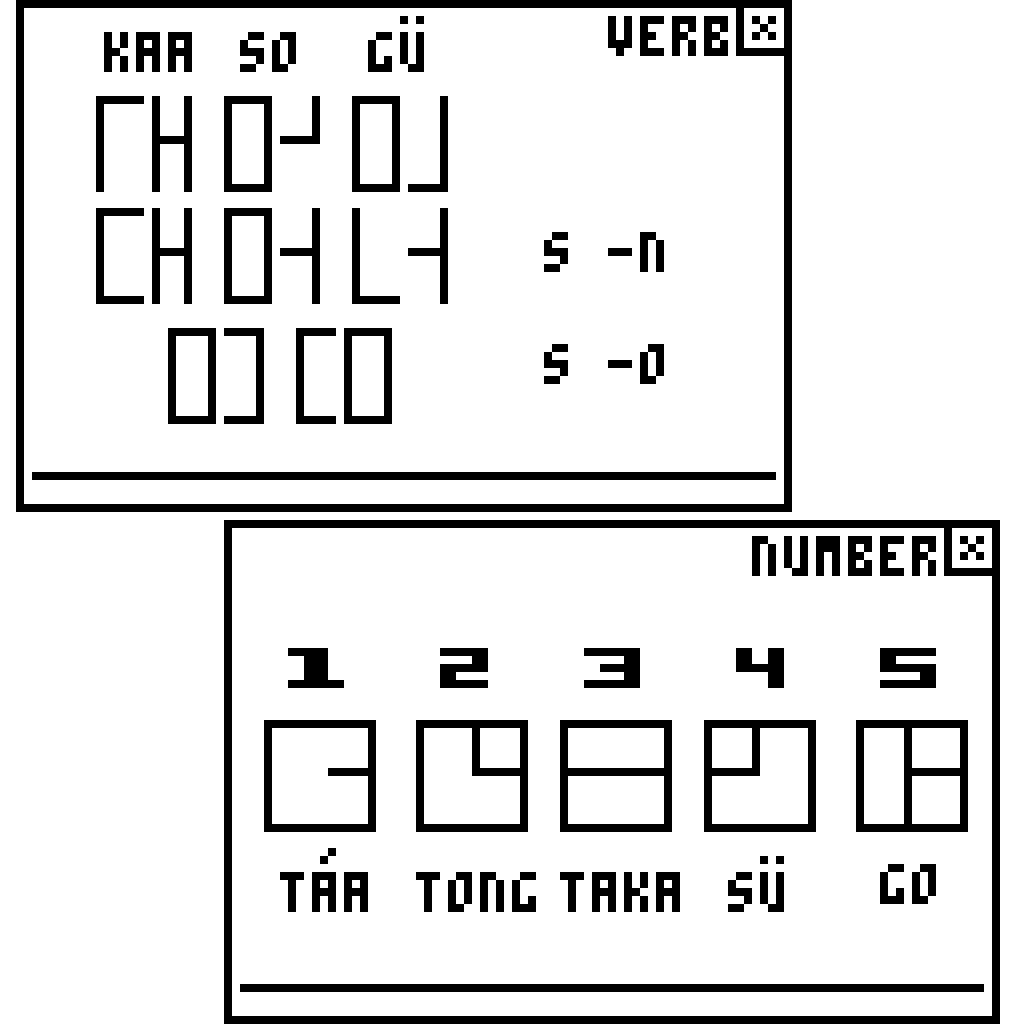náai song is a language i created for an art project for school, and i thought i should put it here.
note: whenever it defines a word as "grammatical particle" it works the same as the toki pona word written next to it.
so basically this language is just a relex of toki pona, with most of it's focus being on it's orthography and pronounciation.
as for the phonology, there's 5 vowels: a /a/ i /i/ o/ɵ~ɔ/ u/y/ and ü which is pronounced /ə/. note: sometimes you may see an á, which is just an a with a rising tone. for the consonants, there are these: g /ɣ/ k /k/ n /n/ ng /ŋ/ s /s/ t /ʈ/ r /r/. note: you may also write ng as ǧ. ?as you can definetly see, the phonology is a weird mess, but i think it sounds quite nice in the end? sure, it's built entirely for the sounds i can (and like to) pronounce, but it still sounds radically different from the langs that inspired it.
grammar is basically the exact same as in toki pona, but there's a couple differences. verbs get conjugated, with a relatively simple pattern. certain grammatical particles like "rau" exist in this language but not in toki pona, but they don't serve much function other than to make the language more complicated :).
verbs are conjugated in three forms: present (kaa-), past (so-) and future (gü-). Depending on the ending of the subject, these do change in how they're written in the orthography i created for it, but it's pronounced the same. if the verb is continuous, you may replace it with (sáa-). informally, it's only (sáa-), but formally you have to both say the tense and wether it's continuous or not. for example, "to jump", which is "gosu", becomes "sáagügosu" if it's in the future tense and continuous. this would mean something along the lines of "i'm going to keep jumping".
the orthography, other than the romanization, consists of a modified version of the skyan script, which you can use [here] along with the skyan script it uses a system of logographs, which you can see below.

next, some example sentences. "táagü o kunáü! roüng güükung gang o naasuing" (welcome to the world of the güükung) "sürau o gáitang ra kaangsaarong náa" (four types of them live here in peace) "táai suná ra gü sakai táso roá güosura" (you may look, but don't disrupt them).
the name of the language translates to "talking knowledge". in universe, it is spoken by the güükung, the people of the box(es). as the name implies, they live in a set of cardboard boxes connected to each other. the güükung look like little balls with various arms and tails, but they are quite simple in biology. if you want to know more about this world, check it out on the worldbuilding page.